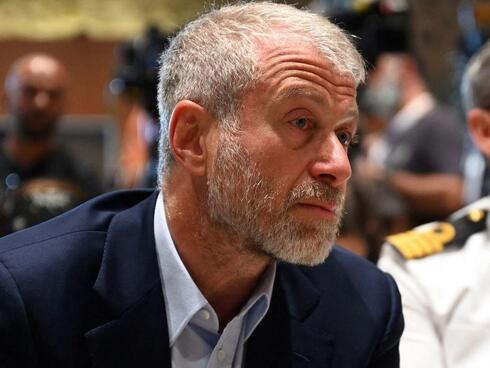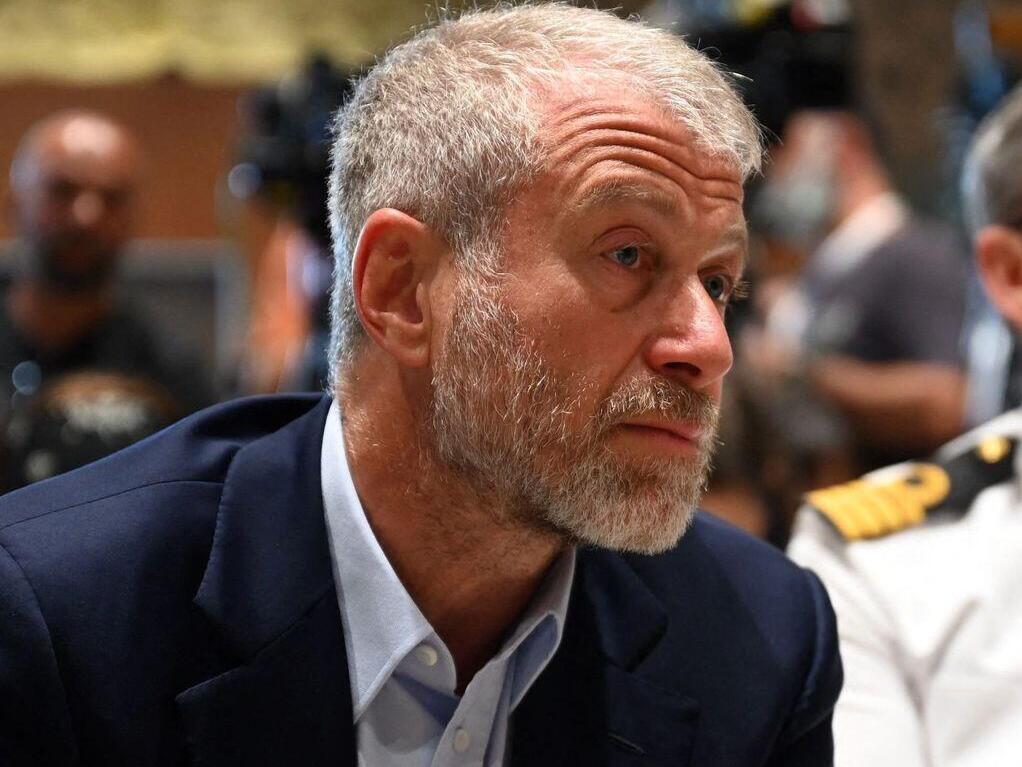
Questions abound on Roman Abramovich’s $2.2 million ZAKA contribution
The Tel Aviv District Court ruled that the Russian-Israeli oligarch can donate NIS 8 million ($2.2M) to ZAKA from a sanctioned account despite the opposition of Bank Mizrahi-Tefahot, the Attorney General of Israel and the Bank of Israel. The bank is appealing the decision and the money will not be transferred until the Supreme Court rules on the matter
The decision of Tel Aviv District Court Judge Yardena Seroussi to allow Roman Abramovich to donate NIS 8 million ($2.2 million) to non-profit rescue unit ZAKA, contrary to the position of Bank Mizrahi-Tefahot, is undoubtedly a brave decision. First, because it was given contrary to the position of the Attorney General of Israel, the Bank of Israel, the supervisor of banks and the bank itself who manages the accounts of the donor and the donee. Second, because the judge took on an active role here in balancing the bank's decision on how to manage its risks and its duty to serve the wishes of its customers.
Abramovich, the Russian-Jewish oligarch left Britain for Israel after having all his assets frozen by Britain. Additionally, his name was added to the EU's "individual sanctions" list. According to the bank, the conclusion from these international sanctions is broad and sweeping - a complete ban on any transfer of funds from his accounts in Israel, not even for charitable purposes such as a donation to ZAKA. This position was joined by the Attorney General of Israel Gali Baharav Miara and the previous supervisor of banks Yair Avidan. Judge Seroussi ruled against the bank.
The bank is appealing the District Court's ruling and the money will not be transferred until the Supreme Court rules on the matter.
The state's position is a kind of tango - one step forward and one step back at the same time. The state accepts the bank's refusal to avoid circumventing the sanctions, and at the same time it also paves the way for the donation to be processed: "If the aforementioned sanctions are implemented, it is expected that the bank will not prevent operations that are excluded under the sanctions," states the state's position. "Determining an exception to the sanctions - general or individual - is placed at the doorstep of the sanctioner."
And this is the core of the story: to what extent is it permissible, and even mandatory, to look beyond specific sanctions? Judge Seroussi turned herself into a type of "exceptions committee", among other things justifying her decision with the following story: in Britain, approval was granted to transfer the funds that Abramovich received from the sale of the Chelsea football club, which he owned, to a donation to the victims of the war between Russia and Ukraine. "Accepting the bank's position," Seroussi writes, "leads to an absurd result, in which Abramovich, an Israeli citizen, can donate the funds of the Chelsea Foundation in England for the benefit of the victims of the war in Ukraine, but he cannot donate the funds he has in a bank in Israel, for which the sanctions apply, for the benefit of the victims of the war here."
In this sense, Mizrahi-Tefahot made Abramovich's situation in Israel worse than in Britain. "The bank voluntarily adopted the sanctions, without also adopting the exceptions to it," Seroussi writes, "thus putting Abramovich in a more difficult situation." And she adds: "I cannot agree with the bank's claim that it is unable to exclude certain actions on its own initiative. It is the bank that determines its procedures. If the bank can voluntarily adopt the sanctions, it can also voluntarily adopt the caveats to the sanctions, all in a reasoned manner and in accordance with its risk management. A blanket ban due to the sanctions cannot be accepted."
The bank must refuse to serve a customer to the extent that this service will harm it and undermine its stability. But according to the ruling, you can't just ring the alarm bells for no reason. "It is not enough to have a vague fear and it is not enough to make a general and causal claim that there is a fear of improper conduct in the account," Seroussi writes. "The bank must point to concrete acts and actions that indicate the existence of a real danger."
The bank's claim is that it may suffer enormous damage because financial institutions in foreign countries will refrain from doing business with it. A representative of the bank said at the hearing: "The damage that will be caused to the bank's customers, to the customers of other banks that work with the bank and to the State of Israel is dozens of times more than the 8 million shekels that will be transferred as a donation. The bank adopts the sanctions as is in its policy, it is not a do as you wish plan." Judge Seroussi replied: "Why should it adopt the sanctions as is? This is an association for philanthropic needs that helps victims of war in a country at war." In her decision, she added and wrote: "The bank did not examine on the merits of the matter and on the basis of individual data, whether it is appropriate to exclude the transfer of a donation from an Israeli account to an Israeli account, while examining the benefit that would arise from this in the face of the potential damage; rather, the bank stated in a sweeping manner that since the transfer of a donation from British accounts or Europeans without approval is prohibited according to the sanctions, so it must also prohibit this.
"The bank did not exercise discretion and it cannot break away from its duty to do so. In this sense, the blanket prohibition of the bank also puts Abramovich in a more difficult situation than if the sanctions had applied to him directly. If the State of Israel were to impose sanctions on its behalf, it is likely a mechanism that excludes certain cases would also have been established at the same time."
A marginal concern does not justify a complete freeze
In Israeli law, there is the rule that "there must be an adequate relationship between the level of the fear that underlies the bank's actions and the level of the steps it takes. It is not possible, due to a marginal fear, to justify taking the step of completely deactivating the account, or a blanket refusal to provide services. The likelihood must be taken into account. Not only the needs of the bank, but also the needs of the customer. Giving a distorted weight to the needs of the bank does not line up with reasonableness." And in simpler words, we return to the balance formula where human rights can be harmed (in this case to his property, to his freedom of occupation) only for reasons of near-certain damage to the bank, its customers, the banking system, and the state.
Abramovich, an Israeli citizen who has never been charged or convicted, neither abroad nor in Israel, was placed under international sanctions because of his supposed closeness to Russian President Vladimir Putin. And here other questions arise: To what extent does the donation to ZAKA harm the international effort against Putin? How legitimate is it to harm a citizen whose government, the government of Israel, has not adopted sanctions against Putin?
The main weakness in Seroussi’s decision is her demand from the bank to prove its damages. How exactly is the bank supposed to prove its future risks or damages? Should it have contacted banks abroad and asked how they would behave if they approved the contribution to ZAKA? Therefore, in the request for permission to appeal that the bank submitted, it focuses on the warning that the decision "has the potential to cause enormous and irreversible damage" and that the AG also claims the "enormous and irreversible damage that may be caused to the bank and the Israeli economy".
Zaka and Abramovich are represented by attorneys Shmulik Kasuto and Bela Peled. Mizrahi Tefahot is represented by attorneys Sharon Lubetzky Hess and Yaniv Holzman, from the office of Amit Pollak Matalon.














